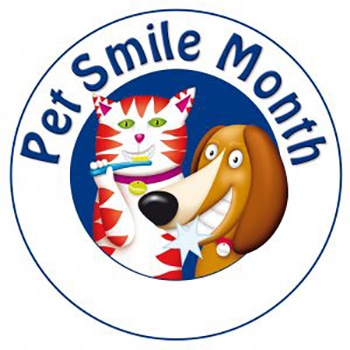We clean our teeth several times a day and have regular check ups with a dentist. Imagine what our mouths would be like if we didn’t! Dogs and cats are no exception.
Our pets are not very good at letting us know if they are in any discomfort. Although your pet may not be showing any obvious signs of dental disease they could be exhibiting the early signs of gingivitis (inflammation of the gums) or calculus (tartar) build up often leading to bad breath due to the bacteria. If this is treated early it could help to avoid costly dental procedures in the future.

Throughout September we will be offering free dental checks for all your pets with a veterinary nurse. During the free consultation we will perform a full examination of your pets’ mouth and teeth and offer any relevant advice relating to oral homecare or dental treatment if it is required. You will also receive a free gift bag and we can demonstrate the best and easiest method for cleaning their teeth.

Healthy teeth- A healthy set of teeth should be free from plaque and tartar with no inflammation around the gum line or any damage to the teeth. Your pet will also have fresh breath. This is easy to achieve with regular brushing and a sensible diet.

Gingivitis- Plaque is forming on the teeth all the time even after cleaning (just like in humans) The plaque then moves into the gaps between the tooth and the gum causing the gum line to become red and eventually swollen which can cause damage to the attachment between the tooth and the gum. The plaque has not hardened at this stage so potentially can be controlled by implementing an oral care regime at home for example tooth brushing and special prescription dental diets and chews.

Calculus/Tartar- This forms from a build up of plaque mixing with the minerals in saliva causing crystallisation of the plaque into a hard stone like material. Once formed, it can only be removed by performing a scale of the teeth, using an ultrasonic scaler under general anaesthetic. If the tartar is not treated, bacteria can build up and be inhaled down your pets’ airways. This can lead to problems with their kidneys, heart and lungs. Underneath the tartar it is quite likely that some of the tooth roots will have decayed and will have to be removed.
Why not contact your local branch and book your free check up now to receive your gift bag. We look forward to seeing you.




